5 Reasons Christianity and Libertarianism are Compatible, Young Evangelicals Say
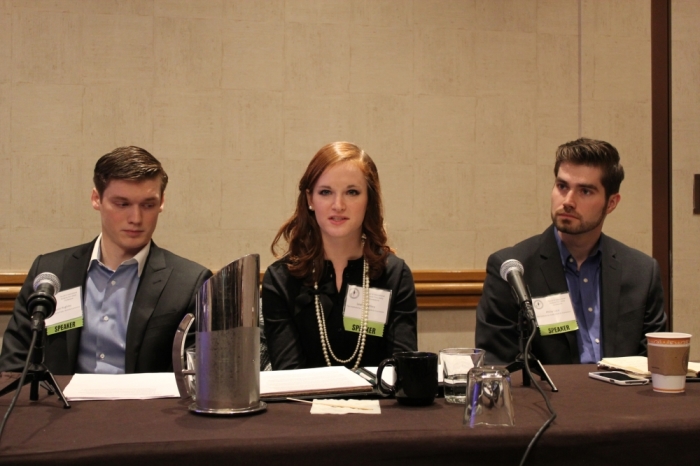
Correction Appended
WASHINGTON — Young Evangelicals argued that Christianity and libertarianism are compatible, and some even claimed that Christians should advocate for libertarian causes.
"Christians actually ought to feel outraged that the redemptive power of charity has been taken from us and given to an unfeeling, coercive state," Leah Stiles Hughey declared at a Saturday panel at The International Students for Liberty Conference. She claimed that when government gets involved in giving to the poor it denies the God-given human dignity of both giver and receiver.
Hughey's husband Jason explained that "the Bible is not a book of political theory." Nevertheless, "there are themes we get from the Bible that give a good foundation for Christians to embrace libertarianism or even anarchy," Jason Hughey said.
The Hugheys and three other panelists provided 5 reasons why they believe Christians can be libertarian in their political beliefs.
1. Christianity Celebrates Voluntary Action, Value Creation
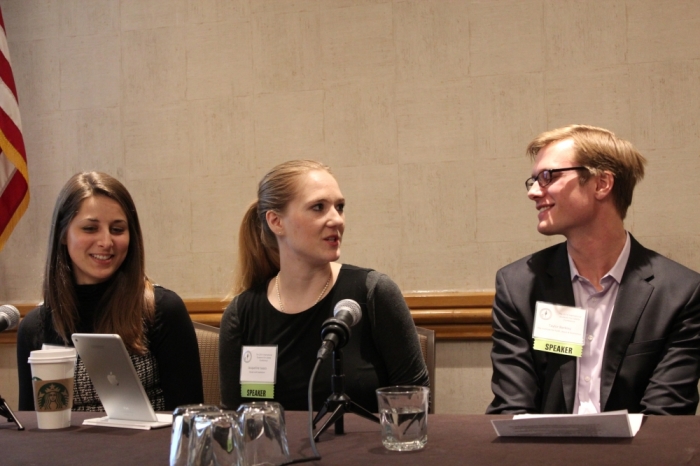
Jacqueline Otto Isaacs, a blogger at Values & Capitalism, explained that the Christian worldview also supports libertarianism. "The message of the Gospel, the good news, is that salvation from our sins is offered through Christ — this salvation is voluntary and individual, and this is the core message of Christianity," Isaacs declared.
"Christianity literally starts with the individual, celebrates the individual's dignity and opportunity for salvation, and then grows outwardly into the community and Christ's kingdom," Isaacs said. She focused on the idea that men and women are made in the image of God. "God created everything out of nothing, and we can create economic value out of scarcity," she explained.
Since Christianity is about voluntary action, so much so that God allowed us to sin and fall short of his glory, governments should let individuals make their own decisions, Isaacs argued. "God respects our freedom, even to reject him, so we can respect the freedom of others," she said.
Jeffrey Tucker, CEO of Liberty.me and distinguished fellow of the Foundation for Economic Education, argued that Christianity offered something unique in the world, a universalist ethic. "Christianity should have a universalist, globalist, expansive outlook, always — and that's the free market, too," Tucker told CP in an interview on Saturday. The free market "has this driving force towards globalism, global community, and universal cooperation — in that way, the free market and Christianity totally agree."
2. Big Government Does Not Solve Poverty
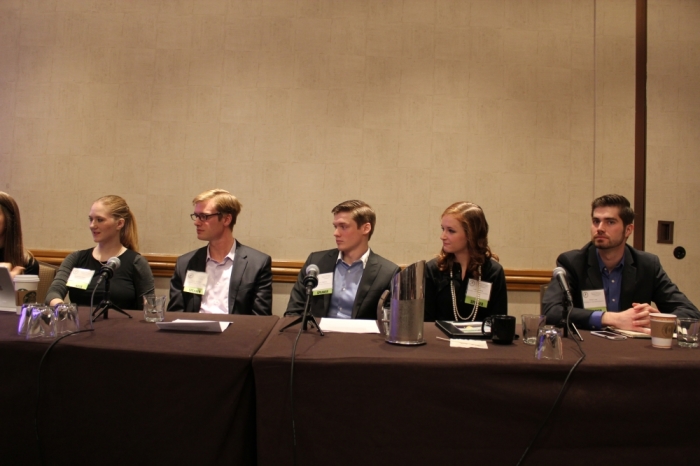
Philip Luca, vice president of Social Media at The American Marketing Association, discussed his experience from going up in Eastern Europe. "We really went all in trying to put our goods in a common pot, and letting the state handle distribution and letting there be no poor among us," Luca explained. "What happened is that all of us became poor."
Isaacs cited Federick Bastiat's book The Law, which argues that the best way to bring the poor out of poverty is through free markets. Man in the image of God can participate in the Lord's redemptive work — "God redeems us from our sins and we can work towards redeeming those around us from poverty and ignorance and disease."
3. The Biblical Role of Government
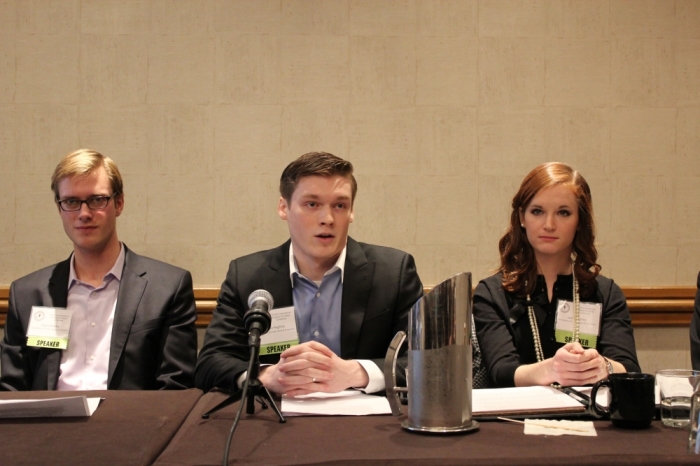
Jason Hughey agreed, citing specific scriptures to argue for a smaller role of government. Hughey pointed to 1 Samuel 8, where the people of Israel asked Samuel for a king. When Samuel went to God, "the Lord was not happy with this – the people of Israel were turning their back on him," Hughey explained. God granted Israel's wish, but warned that their king would conscript their sons, take away their daughters, and tax the people. Hughey ended the reading with the line "and you will be his slaves."
Hughey then pointed to the gospel of Mark, where Christ describes what it means to serve others. "I think it's very interesting that the model of service that Christ points to for the church is stated in direct contrast to the way the political authorities rule and lord it over others," the speaker declared.
Finally, the speaker addressed Jesus' commandment to "render unto Caesar that which is Caesar's and unto God that which is God's." Hughey argued that the emphasis in this passage is not to dignify government but "about rendering unto God what is God's," since "God is the highest authority, Christ is the highest authority, and not Caesar."
4. The Welfare State Harms Christian Charity
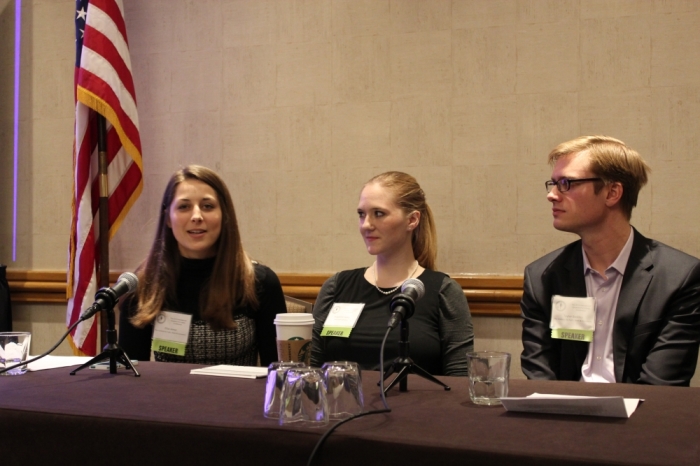
"Christ's example through scripture gives us a model of what charity should look like and government, by stepping in, harms that model and generates tragic consequences for both the givers and the receivers in that situation," Leah Hughey claimed. She emphasized Jesus' declaration in John 18 that no one takes his life from him, but he offers it of his own accord.
Hughey argued that "because his sacrifice was fully voluntary, a bond was established at the cross between Christ the ultimate giver and his people the ultimate receivers." Through charity, Christians partake in this great gift.
But government redistribution ruins this connection, Hughey claimed. "When the government steps in and acts as the giver of what could have been a private gift, instead of having a posture of humility and gratefulness, the receiver actually becomes envious and starts to compare what they have to what the giver has, and feels entitled to the possessions of another human being, which we know from scripture is harmful."
While the receiver feels entitled, the giver becomes angry, Hughey argued. "Instead of getting to decide how their charitable giving is allocated, it's taken from them and redistributed," she said. "They never see where it goes, so they just have a feeling of bitterness towards the welfare state."
5. Wealth Is Not Inherently Sinful
Leah Hughey also argued that scripture does not proclaim wealth as inherently sinful. She addressed a certain reading of Matthew 19:24 — "It is easier for a camel to go through the eye of a needle than for a rich person to enter the Kingdom of God."
"In scripture Jesus has several interactions with wealthy people, but some of them he didn't encourage to sell everything," Hughey argued. She explained that Jesus' warnings are focused on the "heart issue" of whether someone "puts possessions over Christ," and not a mere attack on the rich.
Correction: February 18, 2014
An article on February 18, 2014 reported that a panel was sponsored by The Institute for Faith, Work, and Economics. The International Students for Liberty Confernece panel was not sponsored by any organization.




























